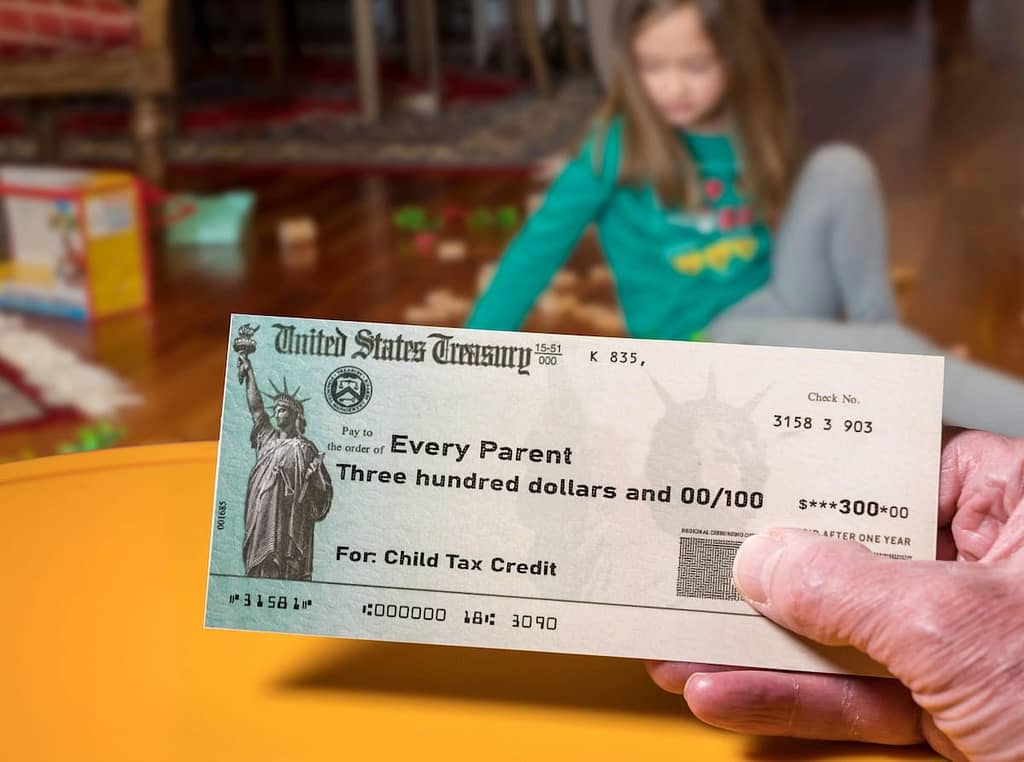
IRS Child Tax Credit Rapid information and disinformation dissemination via social media platforms has become a major problem in the digital era, greatly impacting public perception and comprehension.
A recent Facebook post asserting that the Internal Revenue Service (IRS) will start paying out $300 monthly to children under six and $250 monthly to those between six and seventeen beginning in 2025 is an example of this phenomena.
With a screenshot allegedly taken from a Google search result, this article has garnered a lot of attention and discussion, demonstrating how easily false information can propagate online.
Table of Contents
CTC Monthly $300 Stimulus Payment Coming for Kids?
The post’s content is erroneous and does not represent IRS policies as of right now or in the future. The American Rescue Plan Act of 2021’s temporary modifications to the Child Tax Credit appear to be the cause of this mistake.
From July to December 2021, qualifying families were given enhanced child tax credits in advance monthly payments. But rather than going to youngsters, these money went straight to parents or guardians.
Current IRS Child Tax Credit Regulations
According to the most current revisions, parents and guardians can get financial assistance to aid with the expenses of raising children through the Child Tax Credit (CTC). After the interim improvements from the American Rescue Plan Act of 2021 expired, the following are the current regulations:
Basic Structure of the Child Tax Credit
- Credit Amount: The CTC allows eligible parents or guardians to claim up to $2,000 per qualifying child.
- Age Limit: The credit is applicable for children under the age of 17 at the end of the tax year.
- Refundability: Part of the CTC is refundable. This means that if the credit amount exceeds the taxes you owe, you can receive the difference as a refund. This refundable portion is known as the Additional Child Tax Credit (ACTC).
- ACTC Amount: The maximum refundable amount is up to $1,400 per child. This refundability ensures that even families who owe little to no income tax can benefit.
Eligibility Criteria
- Income Requirements: The full credit is available to families with incomes up to $200,000 for single filers and $400,000 for married couples filing jointly. Above these income levels, the credit begins to phase out.
- Residency and Relationship: The child must have lived with the taxpayer for more than half of the tax year and must be related to the taxpayer (son, daughter, stepchild, foster child, sibling, or a descendant of any of these).
- Support: The child must not have provided more than half of their support during the year.
Tax Year 2021 vs. Current Regulations
It’s crucial to remember that the CTC was entirely refundable and raised to $3,600 for children under six and $3,000 for those between six and seventeen in 2021 under the American Rescue Plan’s interim provisions. Families were also given monthly advance payments as part of these improvements. These modifications were not, however, continued until 2021.
The pre-2021 framework, which is less generous but nevertheless offers a substantial amount of support to families nationwide, has been reinstated in the present legislation. The CTC now functions as outlined above, although future improvements or modifications may be possible as political talks continue.
Future Proposals and Political Context
IRS Child Tax Credit In his 2025 budget, former President Joe Biden suggested reintroducing the 2021 enhanced child tax credit and distributing it as monthly installments. However, there are significant legislative obstacles to this proposal, especially in the House of Representatives, which is controlled by Republicans. Rather than representing an impending policy change, this budget proposal reflects the president’s priorities as he runs for reelection.
The assertion made in the Facebook post regarding new IRS child tax credit payments beginning in the winter of 2024 is false. It is crucial that the public stays informed about the legislative process that affects tax policy changes and consults credible sources and official statements.
